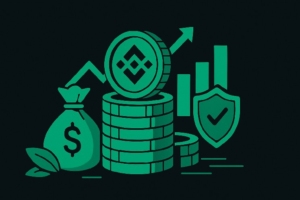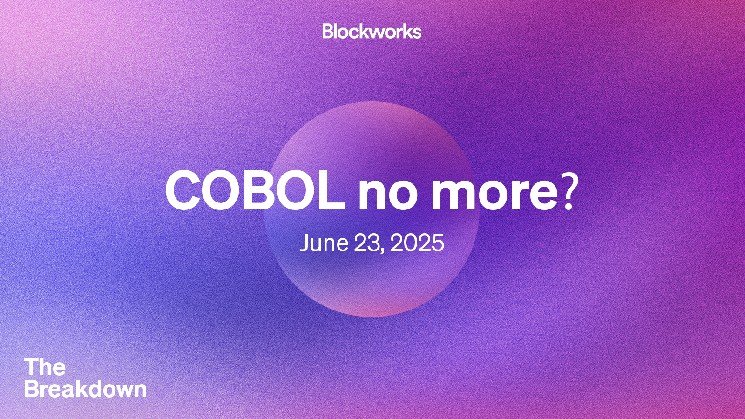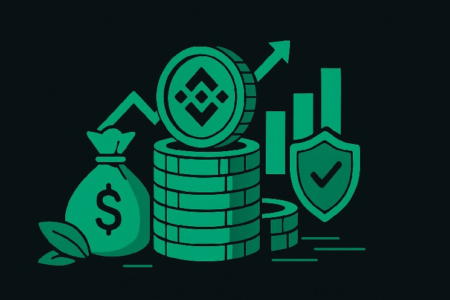This is a segment from The Breakdown newsletter. To read full editions, subscribe.
“The global economy is going to work 100 times better because it’s using this new technology that lets us move money in a permissionless, programmable way.”
— Jesse Pollak
Imagine if Twitter, instead of publishing the world’s stream of consciousness in real time, embargoed our posts during the day and released them all at once at 2 am every day.
Or if the New York Times stockpiled its journalists’ daily output and published it in a single daily batch.
Such is the pre-internet dystopia in which our banking system still lives.
Credit cards, Venmo and Apple Pay make it feel like we’re sending money in real time, but this is smoke and mirrors.
For the most part, banks still collect our payment instructions during the day and process them in one giant batch in the middle of the night.
That’s because, behind the scenes, banks still keep their internal ledgers on creaky mainframes powered by COBOL — a programming language old enough to collect Social Security.
A Reuters study from 2017 estimated that 43% of the world’s banking systems run on COBOL, including those accounting for 80% of in-person transactions and 95% of ATM transactions.
At the time, the industry was estimated to be running on 220 billion lines of COBOL — and banks continued to pile it on in the years since, digging themselves ever deeper into a hole of legacy code.
Many fear there is no way out.
One top banking regulator said banks “feel like hostages” to their core COBOL-based systems, which are too mission-critical to risk replacing — or pausing, even.
“Some of these systems have been running for decades without being turned off,” according to a software executive who refers to banks’ COBOL systems as “zombie code.”
“If there is a power shortage,” he adds, “many banks will have no idea how to turn the core systems back on.”
This risk is not just theoretical.
When the British bank TSB turned its COBOL systems off in 2017 to migrate to a modern Java-based platform, for example, it failed to get the new system turned on correctly.
This left as many as 1.9 million customers without access to their accounts, including tens of thousands of business customers who were unable to pay their employees.
The disruption lasted for the best part of a year and cost the bank more than £400 million in customer compensation, consulting fees, operational losses, fraud and regulator fines.
TSB’s chief investment officer was personally fined £81,000.
Not many banks have risked replacing COBOL since.
Recognizing that these legacy systems are effectively impossible to replace, banks have instead been looking for ways to simply avoid them, with only modest success — the real-time payments we make with Venmo and PayPal continue to be batched overnight by COBOL.
But JPMorgan’s deposit coin, JPMD, hopes to do better.
Announced last week, JPMD will allow whitelisted customers to move deposits held with JPMorgan on Coinbase’s BASE blockchain.
A fully KYC’d digital dollar on a corporate blockchain is not exactly cypherpunks’ dreams come true, of course.
But it’s undeniably useful.
In effect, it would allow banks to move money with hundreds of lines of smart contract code instead of 100,000s of lines of COBOL code.
Similarly, Jesse Pollak told the Unchained podcast that Coinbase has helped Shopify build an onchain payments protocol that will use smart contracts to do the same job that previously required “millions of lines of code of offchain systems.”
This, he says, will allow Shopify to move money “way more efficiently, way more cheaply and fully, fully global.”
In Pollak’s telling, that is how crypto and blockchains will make the global economy “work 100 times better.”
I don’t blame you for being skeptical.
Most of the blockchain-based reimaginings of finance that I write about here are crypto-native fever dreams that end up leaving little impression on reality.
But TradFi appears to be paying attention this time: Shares of Visa and Mastercard slumped last week on fears that stablecoins really will disrupt payments, while newly issued Circle shares were skyrocketing.
The even better evidence that something is different this time may be today’s news that the fintech giant Fiserv plans to issue its own stablecoin and launch a Solana-based payments platform for smaller banks to use it on.
I find this instructive because Fiserv is one of the three major fintech companies that provide “middleware” connecting banks’ batch-processing COBOL systems to real-time payment systems like FedNow.
Read the full article here










